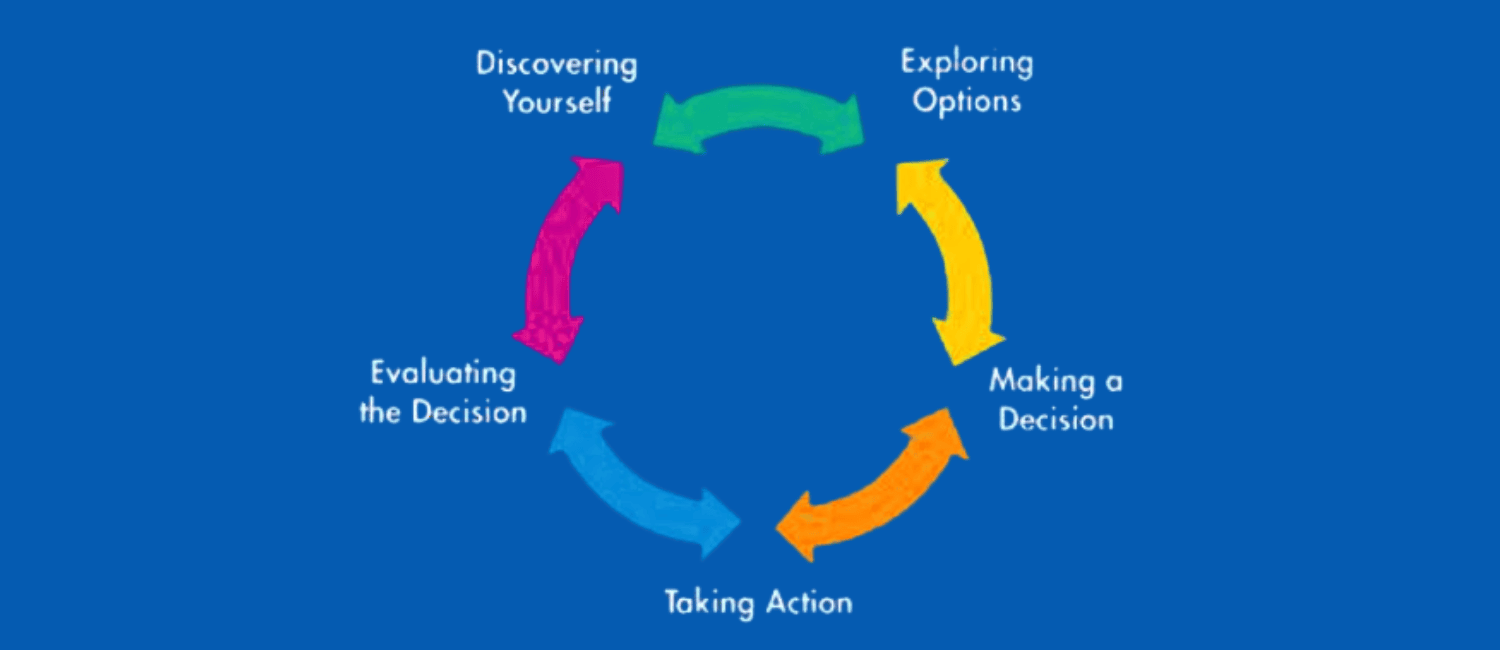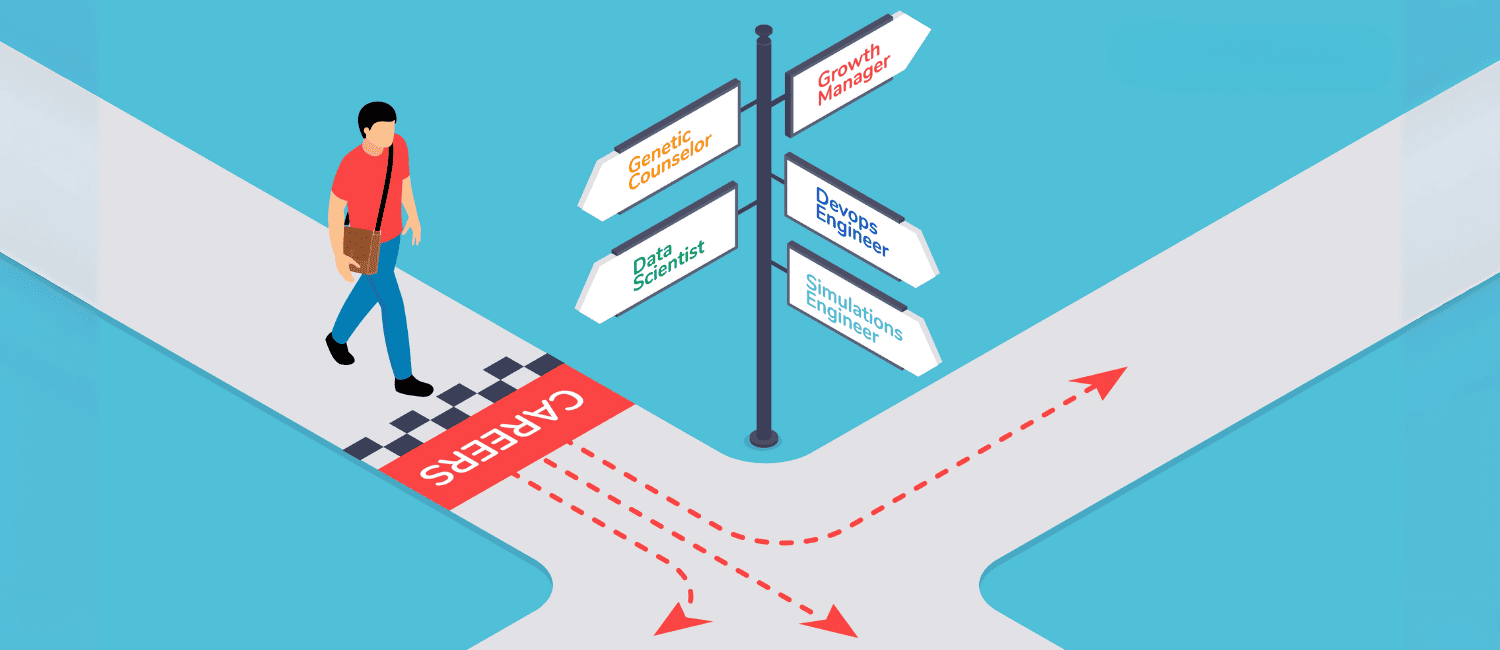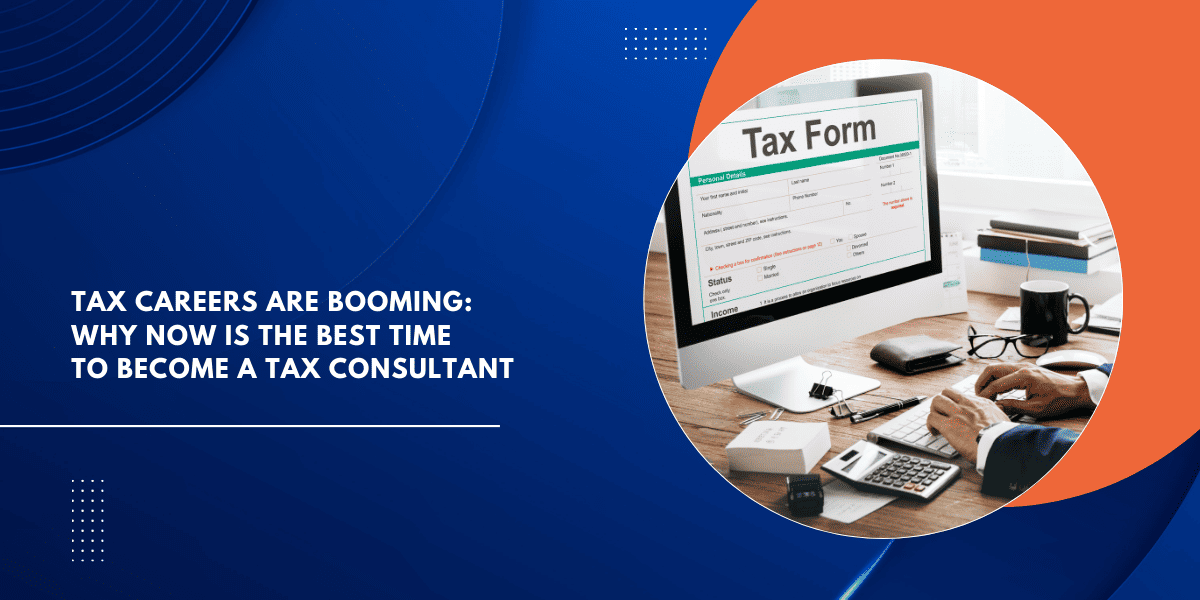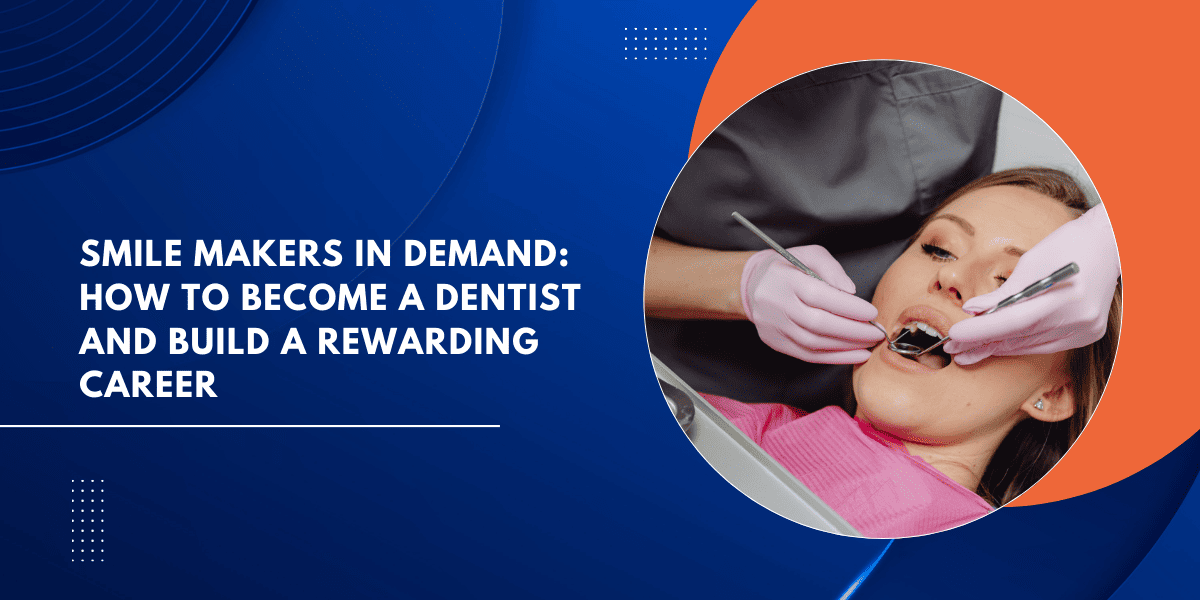Introduction: A Parent’s Quiet Worry & A Teen’s Big Decision
Your child is about to finish Class 12. You’re proud, of course—but somewhere inside, there’s a quiet worry.
“Are we making the right choice for their future?”
BBA or BCom? It feels like such a simple fork in the road. But what if it shapes everything that comes after?
As a career coach, I’ve sat with many families at this exact moment—torn between practical advice, peer pressure, and the fear of choosing “wrong.” And there’s something we often forget: the teenage brain isn’t wired for long-term clarity.
In fact, neuroscience tells us that the Prefrontal Cortex—the part responsible for future planning and decision-making—is still developing well into the mid-20s. Meanwhile, the emotional brain, or Limbic System, is fully active during these years.
That’s why teens often choose what feels exciting in the moment—without fully seeing where it leads.
So when your child says, “I think I’ll do BBA… or maybe BCom? I’m not sure,”—it’s not indecisiveness. It’s developmentally normal.
Here’s the good news: with the right guidance, students can learn to balance emotion with logic, and make a decision that’s both informed and aligned with who they are.
Let’s explore the difference between BBA and BCom, not just in terms of subjects and salaries—but through the lens of self-awareness, clarity, and long-term potential.
Because this isn’t just about a course.
It’s about a future they’ll wake up excited for.

Tools & Frameworks for Better Decision-Making
As a career coach, I’ve seen this decision being made for all the wrong reasons:
❌ “My friends are doing BCom, so I’ll join too.”
❌ “BBA sounds cooler. I’ll get an MBA later anyway.”
❌ “I’ll figure it out in college.”
As a career coach, I’ve seen this decision being made for all the wrong reasons. Understanding the BBA and BCom difference can give your child a head start—not just in college, but in life.
Smart Tools to Cut Through Confusion: Helping Your Teen Choose with Confidence
Choosing between BBA and BCom can feel like walking through fog—so many opinions, yet no clear direction. That’s why decision-making tools and frameworks are essential. They don’t give “the right answer” but help you ask better questions.
Here are some practical approaches I use in my career counselling sessions to bring clarity and confidence to families:
1. Start with Self-Awareness, Not the Stream
Common Myth: “Commerce stream means you should take BCom; BBA is for those who want to go into business.”
Reality & Insight: The stream you choose in 11th or 12th doesn’t dictate your entire future. Many students assume that their school stream locks them into a rigid career path—but in reality, your interests, strengths, and values should shape your next move more than the stream itself.
Example: Take Aanya, a commerce student who loved planning school events and managing teams. Despite everyone telling her BCom was the “safe” path, she thrived in a BBA program where she could study management concepts from day one and eventually launched her own event planning company during her MBA!
Tool Tip: Use a career mapping worksheet that matches your child’s strengths (analytical thinking, creativity, leadership, etc.) with the course structure of BCom vs BBA. This helps avoid one-size-fits-all decisions.

2. Choose Based on Learning Style, Not Just Career Labels
Common Myth: “BCom is too theoretical, BBA is too generic.”
Reality & Insight: This oversimplifies both courses. BCom dives deep into core subjects like accounting, taxation, and finance, making it great for students who enjoy numbers and detail-oriented work. BBA offers a broader, application-driven approach with case studies, presentations, and group projects—ideal for students who thrive in collaborative, business-oriented environments.
Example: Raj was told BBA wouldn’t get him far without an MBA. But he enjoyed real-world business problem solving and chose BBA. By third year, he had already interned with two startups and was managing social media for a local business. His hands-on learning gave him an edge long before his MBA.
Tool Tip: Try the Learning Personality Grid—visualize how your teen learns best (visual, verbal, experiential) and compare that with course delivery styles in BBA and BCom.
3. Don’t Decide Based on Job Titles—Think Career Ecosystems
Common Myth: “BCom is for CAs and finance jobs. BBA is for MBAs and managers.”
Reality & Insight: Today’s careers are dynamic, and neither BCom nor BBA limits your job roles. A BCom graduate can work in marketing. A BBA student can enter finance or analytics. What matters is how you build your skill set, network, and exposure during the degree.
Example: Sneha started BCom with plans to pursue CA but found her interest shifting toward digital marketing. She joined short courses, did internships, and is now working as a marketing analyst at a fintech company—blending her commerce foundation with creative digital skills.
Tool Tip: Use the Career Ecosystem Wheel—list core interests in the center and explore how both BBA and BCom can lead there through electives, internships, certifications, and postgraduate options.
Real Stories, Real Lessons: What Choices Reveal About Mindset
Case 1: Meet Aanya
Aanya was a high-performing commerce student whose parents expected her to follow the “safe” BCom + CA path. But Aanya always found joy in organizing events, leading clubs, and presenting ideas. When she came across BBA, something clicked—she could actually study what she loved: marketing, management, and strategy. Despite initial resistance from family, she pursued BBA, excelled in internships, and even launched a small campus-based venture. Today, she’s completing her MBA with a clear purpose, strong experience, and no regrets.
Psychological Insight:
Aanya’s story shows the power of intrinsic motivation. She didn’t just follow what was expected—she paid attention to where she naturally thrived. Research shows that students who align education with interest and identity tend to build better confidence, resilience, and career satisfaction over time.
Case 2: Meet Raj
Raj chose BCom because it was “what everyone was doing.” The first year was comfortable, but soon, he started questioning his choice. He was more drawn to discussions, startup news, and business strategy videos than audit and tax classes. After a tough conversation with a mentor, he switched to BBA, where project-based learning and teamwork re-energized him. Today, Raj is building a career in business consulting—and finally feels aligned with his strengths.
Psychological Insight:
Raj’s story reflects the trap of conformity bias—the tendency to follow the herd out of fear of judgment or uncertainty. But once he gave himself permission to realign with what genuinely excited him, his motivation and performance improved dramatically.
So what do these stories teach us?
Beneath every course decision is a deeper mindset—about risk, identity, fear, and self-belief. Many students (and parents) make choices based on assumptions, outdated advice, or peer pressure—only to feel disconnected later. Aanya and Raj both made courageous pivots—not just in course, but in self-awareness. And that made all the difference.
Reflection Prompt for Parents & Students:
Before finalizing any course, ask: Are we choosing this because it truly fits my/our child’s strengths and interests, or just because it feels familiar or “safe”?
Sometimes, the most meaningful decisions begin with a quiet moment of honest reflection.
Actionable Steps for Parents & Students: Building Confidence in the Right Choice
Navigating between BBA and BCom isn’t just about picking a course—it’s about building future-ready thinking, confidence, and adaptability. Here are practical, thought-provoking steps you can take together:
1. Start with a Strengths + Interests Audit
Before choosing a course, help your child list what energizes them—problem-solving, numbers, creativity, leading teams?
Why this matters: Career success today isn’t just about degrees—it’s about knowing yourself early. A strength-aligned path boosts engagement, performance, and long-term confidence.
For Parents:
Don’t default to “safe” = BCom and “smart” = CA. In the future of work, clarity and emotional investment matter more than default paths.
Next Step: Sit down together this weekend and explore where your teen naturally shines—school projects, hobbies, social roles—this is where career clues often live.
2. Map Course Content to Future Skills
Research the subjects offered in both BBA and BCom across different colleges. What will your child actually learn, and how do these subjects connect with the skills needed in their dream career?
Why this matters: This builds career resilience. Skills like communication, critical thinking, data literacy, and people management are the real currencies of tomorrow’s job market.
For Parents:
“Generic” degrees don’t protect future careers. Skill-rich, applied programs do. Think of this not as a short-term academic choice but as career insurance.
Next Step: Ask your child to shortlist 2-3 colleges and compare the curriculum. Use this as a launchpad to discuss not just what they’ll study—but why it matters.
3. Talk to Real People (Not Just Google)
Connect with alumni, seniors, or professionals who pursued BBA or BCom. Ask about their learnings, regrets, career paths, and day-to-day work.
Why this matters: It moves the decision beyond assumptions and brings in real-world clarity—which reduces anxiety and regret down the road.
For Parents:
Replace “Humare time mein…” stories with fresh, lived insights. Today’s job market moves faster than ever—and learning from those living it is powerful.
Next Step: Encourage your child to reach out to a cousin, neighbor, or LinkedIn contact in either stream. A 15-minute conversation can change the perspective more than hours of online research.
4. Co-Create a 3-Year Vision Map
Once a course is shortlisted, sketch out what the next three years could look like—subjects, internships, certifications, and experiences.
Why this matters: Visualizing the journey builds ownership and intrinsic motivation. Your child feels like they’re shaping their own path, not just “being enrolled.”
For Parents:
Avoid the trap of “Ek baar admission le lo, baad mein dekh lenge.” Engagement begins before college starts. Co-ownership builds lifelong decision-making muscles.
Next Step: Grab a notebook and spend 20 minutes mapping ideas—from summer internships to online courses. Make it collaborative, not prescriptive.
5. Reframe “Changing Your Mind” as Growth, Not Failure
Let your child know it’s okay if they course-correct later. It’s not a waste; it’s wisdom gained through experience.
Why this matters: In a world where most people switch careers 2–3 times, learning to adapt is a core skill. Building psychological flexibility early gives your child an edge.
For Parents:
Let go of the belief that “Ek baar jo choose kiya, bas wahi karna hai.” Career agility is now a superpower—not a flaw.
Next Step: Say this out loud to your child today: “Whatever you choose, we’ll learn and adapt together. I trust your journey.” It’s powerful and empowering.
By following these steps with curiosity and compassion, you’ll not only help your child choose between BBA and BCom—you’ll equip them with tools for smarter, braver decisions in life and work.
Conclusion: Takeaways & Call-to-Action
Here’s what we now understand—not just about BBA and BCom, but about decision-making itself:
When teenagers face academic choices, they’re often relying more on the limbic system—the emotional brain—than their prefrontal cortex, which matures only in their twenties. That means many career decisions are guided by feeling more than future planning.
As a parent, your presence as a thinking partner—not just a well-wisher—can help bridge that developmental gap. You don’t need all the answers. You just need the right questions, tools, and a space for your child to think aloud.
So what’s the real difference between BBA and BCom? It’s not just in subjects or job roles. It’s in how well the course aligns with your child’s interests, learning style, and future goals.
Takeaways at a glance:
- The difference between BBA and BCom goes beyond degrees—it’s about career clarity and emotional investment.
- You don’t have to choose between “safe” and “smart.” You can choose aligned.
- The earlier you map strengths, values, and skill-building, the smoother the career journey becomes.
A gentle next step:
If you or your child are still unsure, that’s okay. Confusion is not a flaw—it’s a sign you care about getting it right. And that’s where we come in.
Let’s co-create clarity together.
Consult NextMovez’s expert career counsellors who will help you find your child’s unique path with confidence and compassion.
Because every great decision begins with a safe space to explore.






















